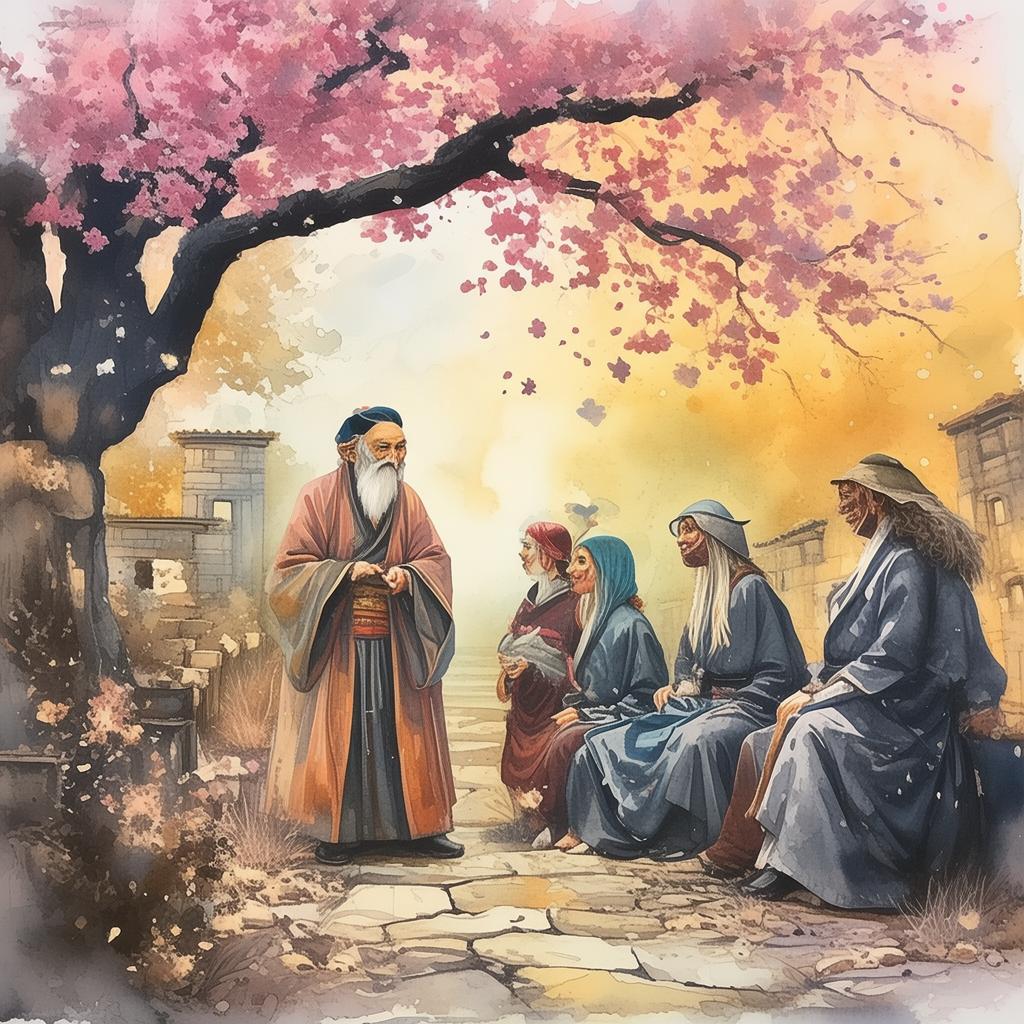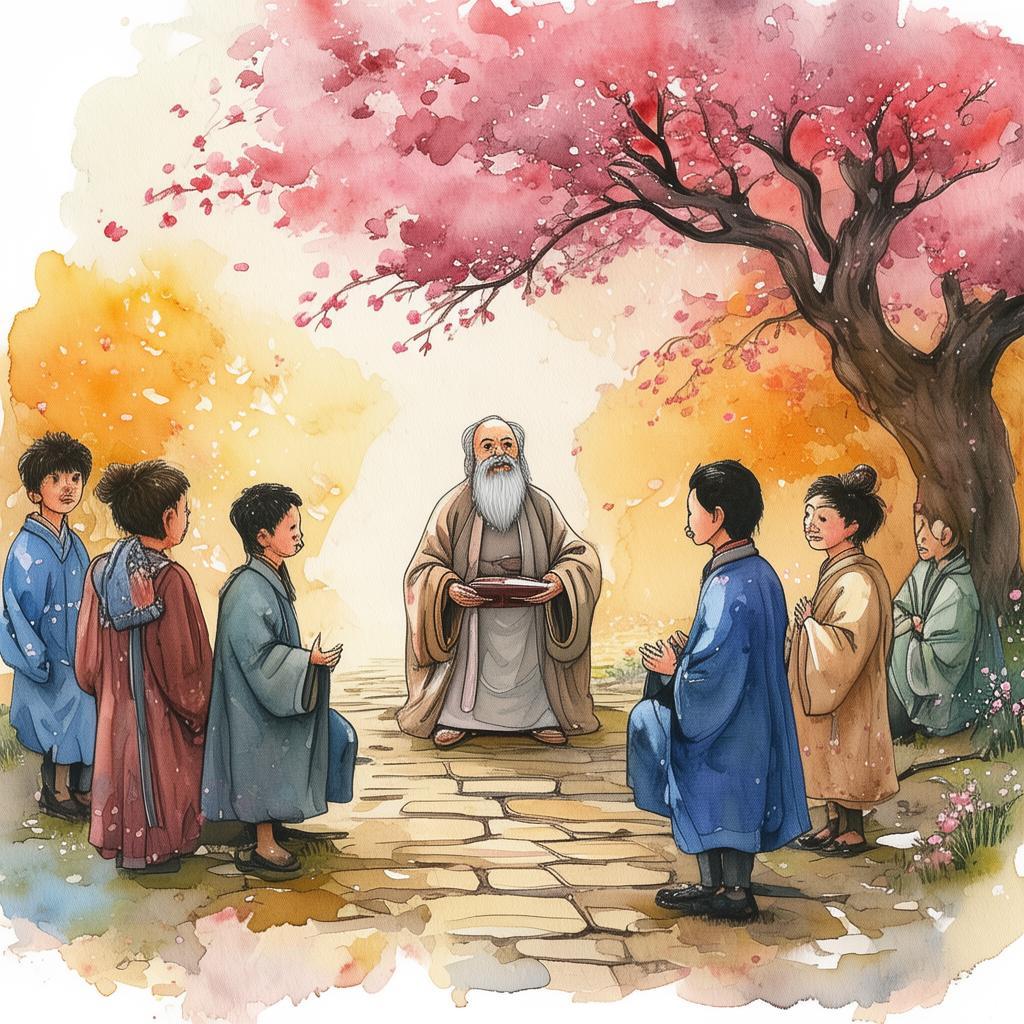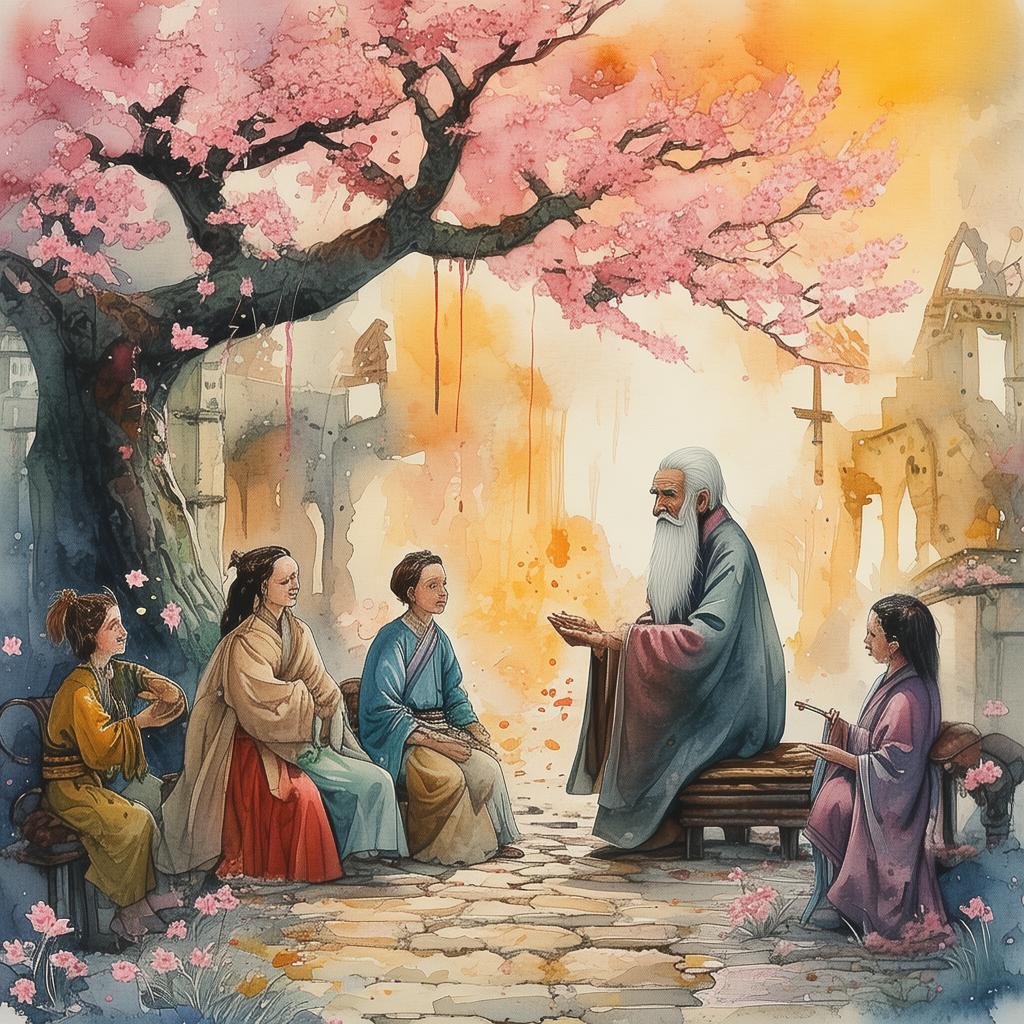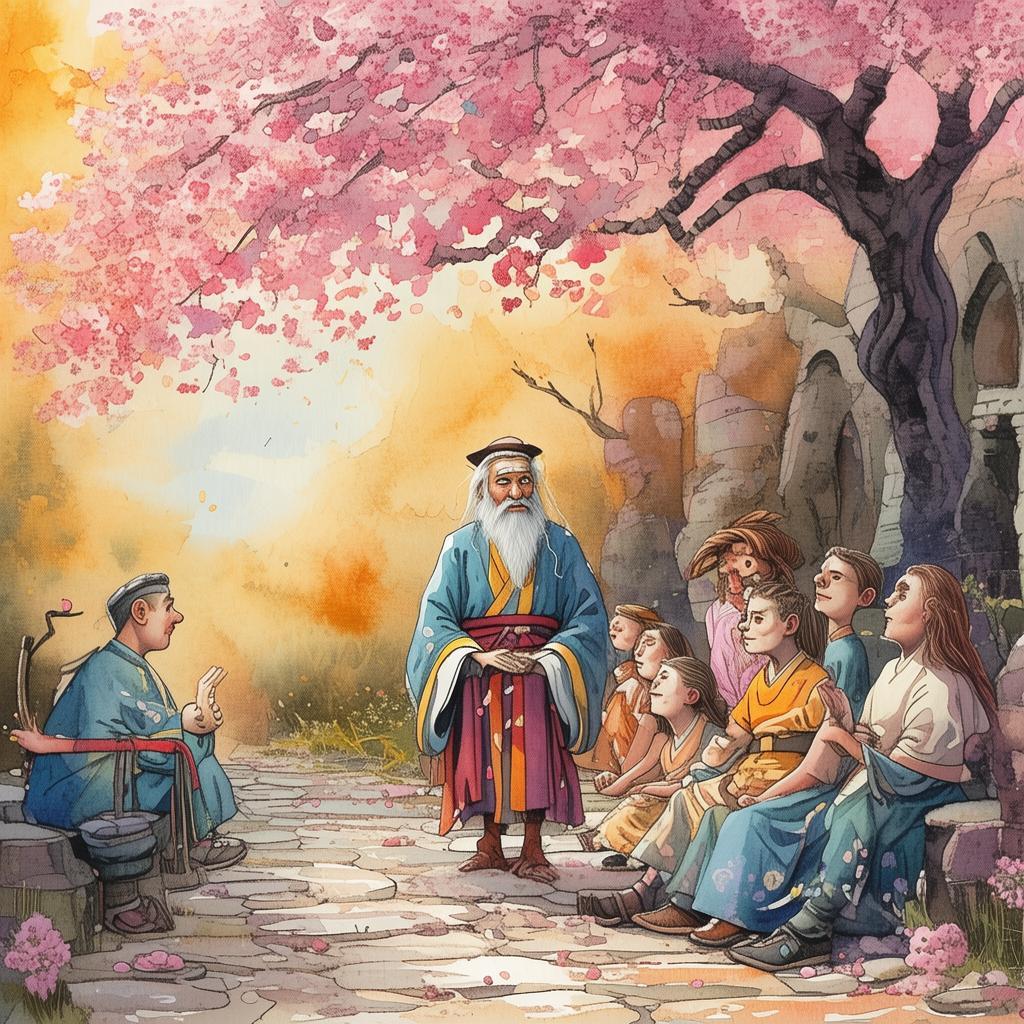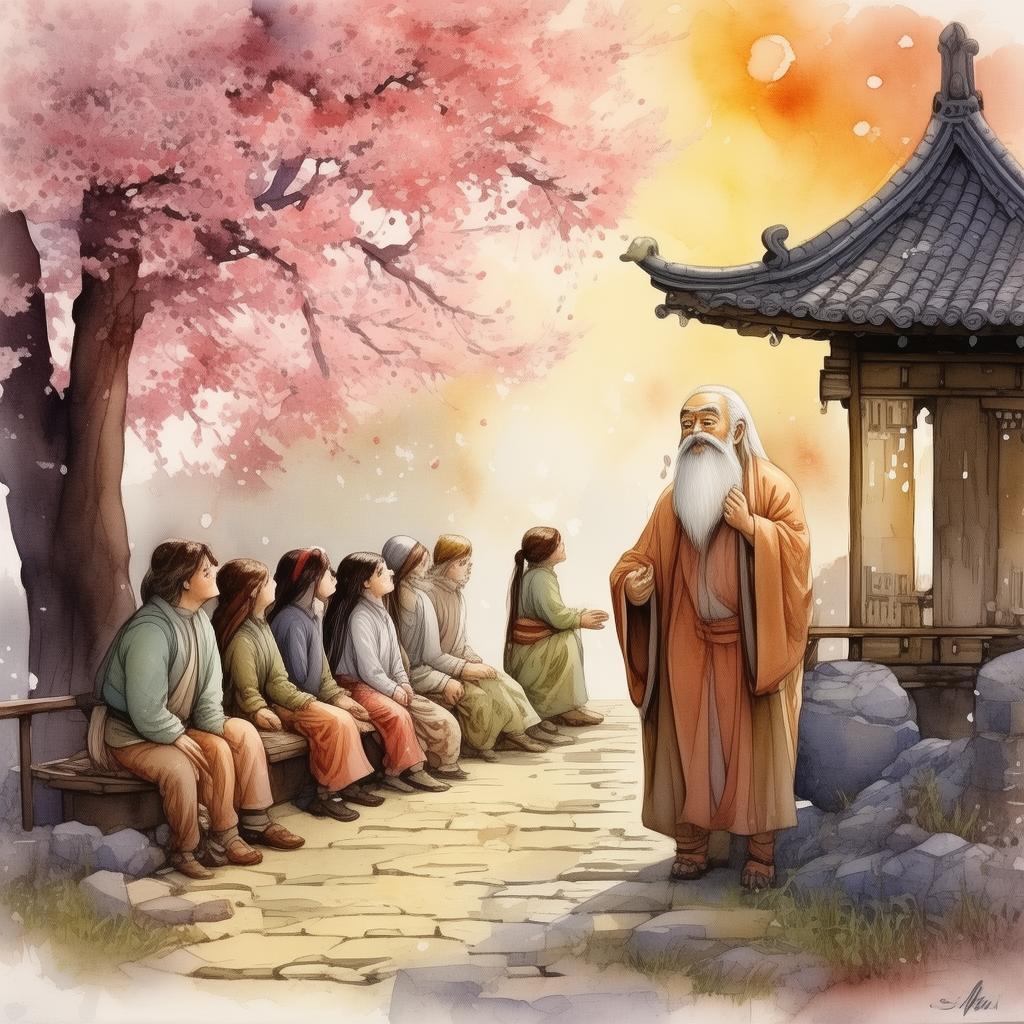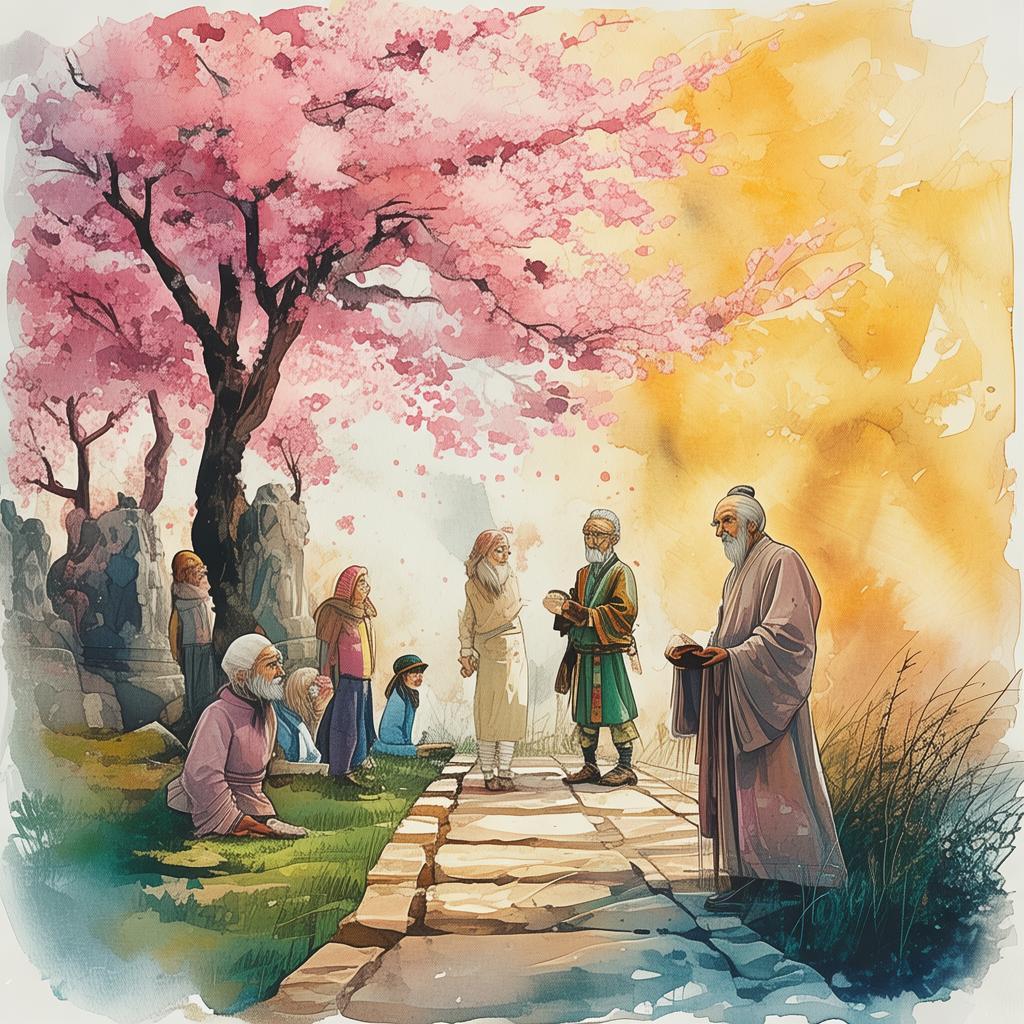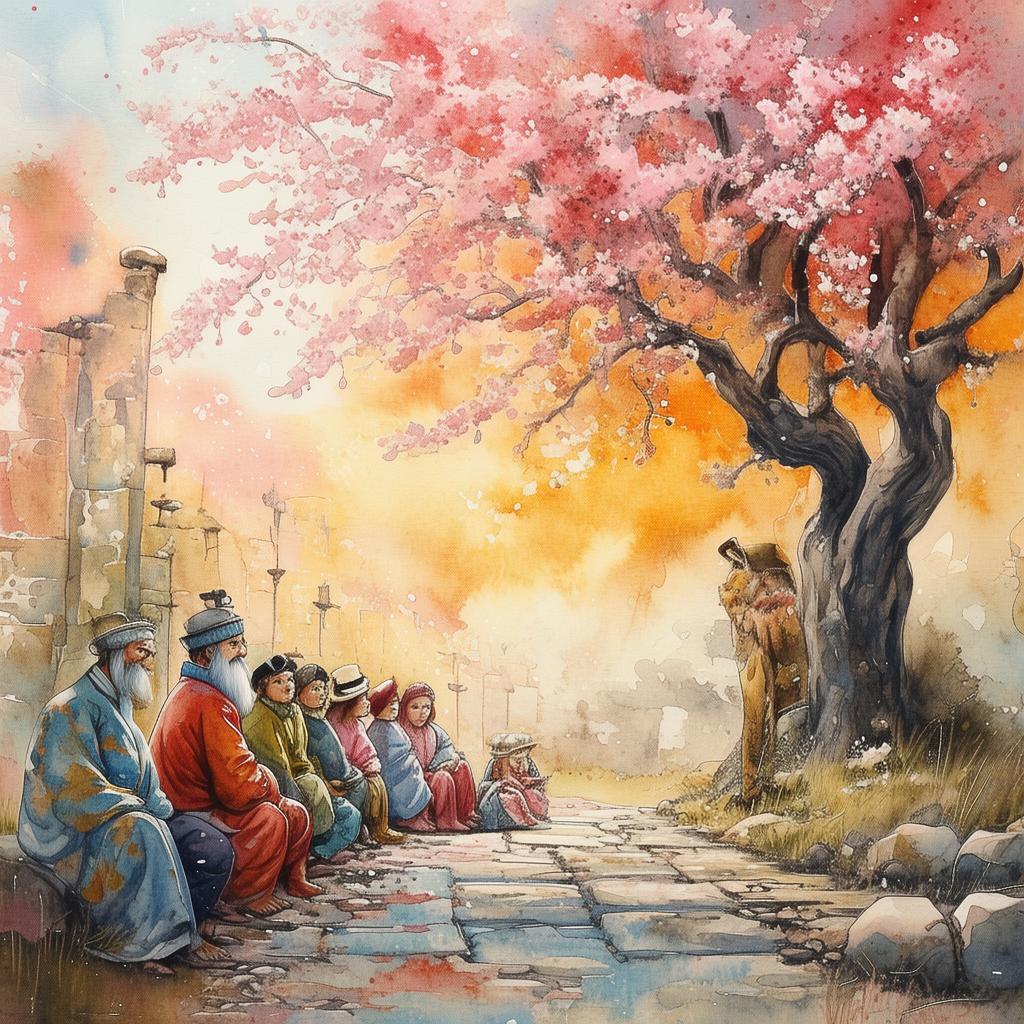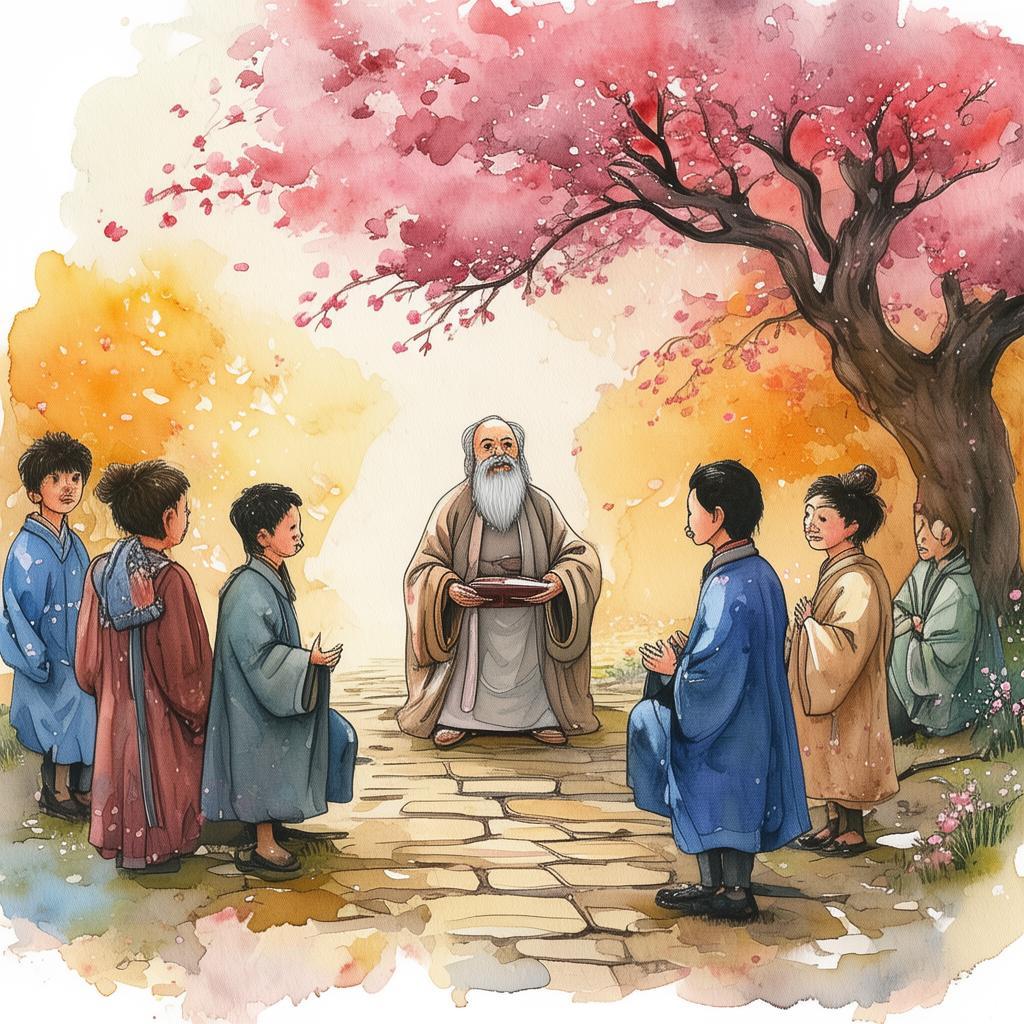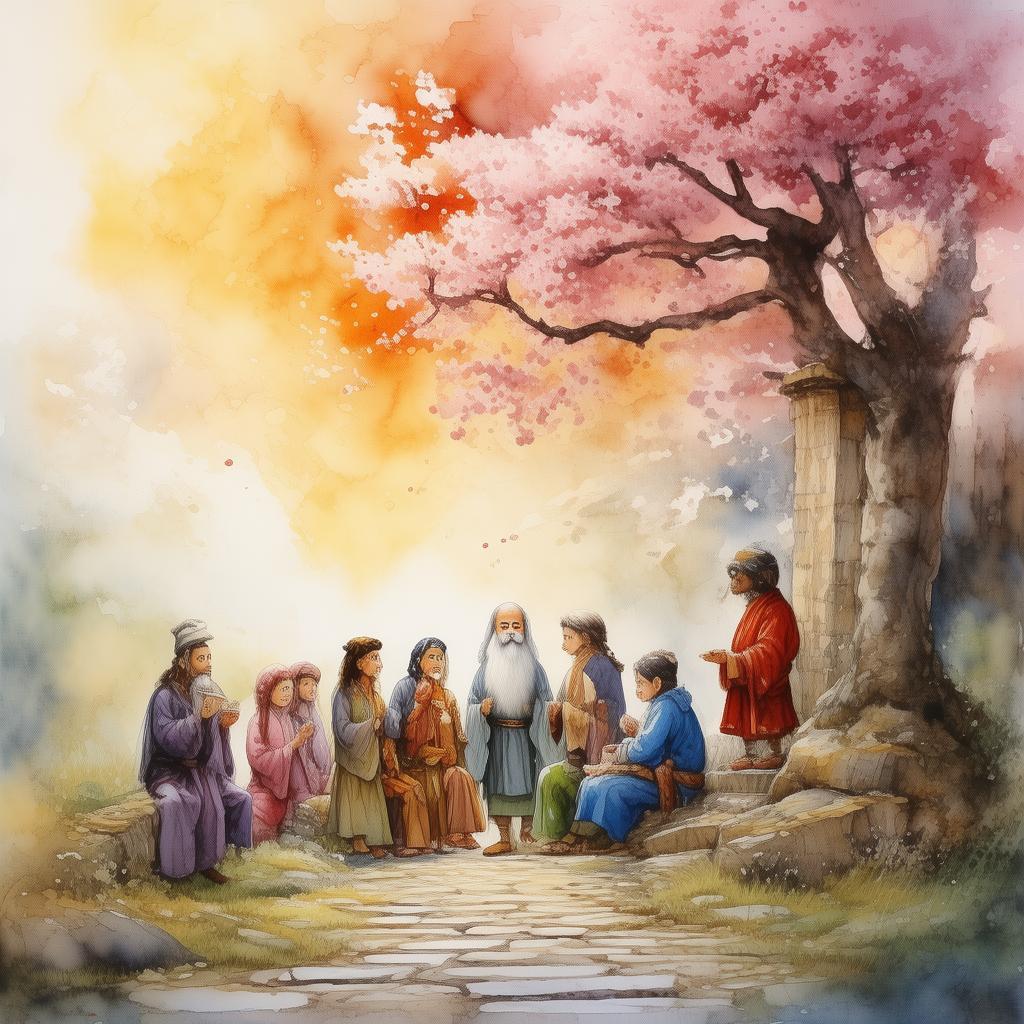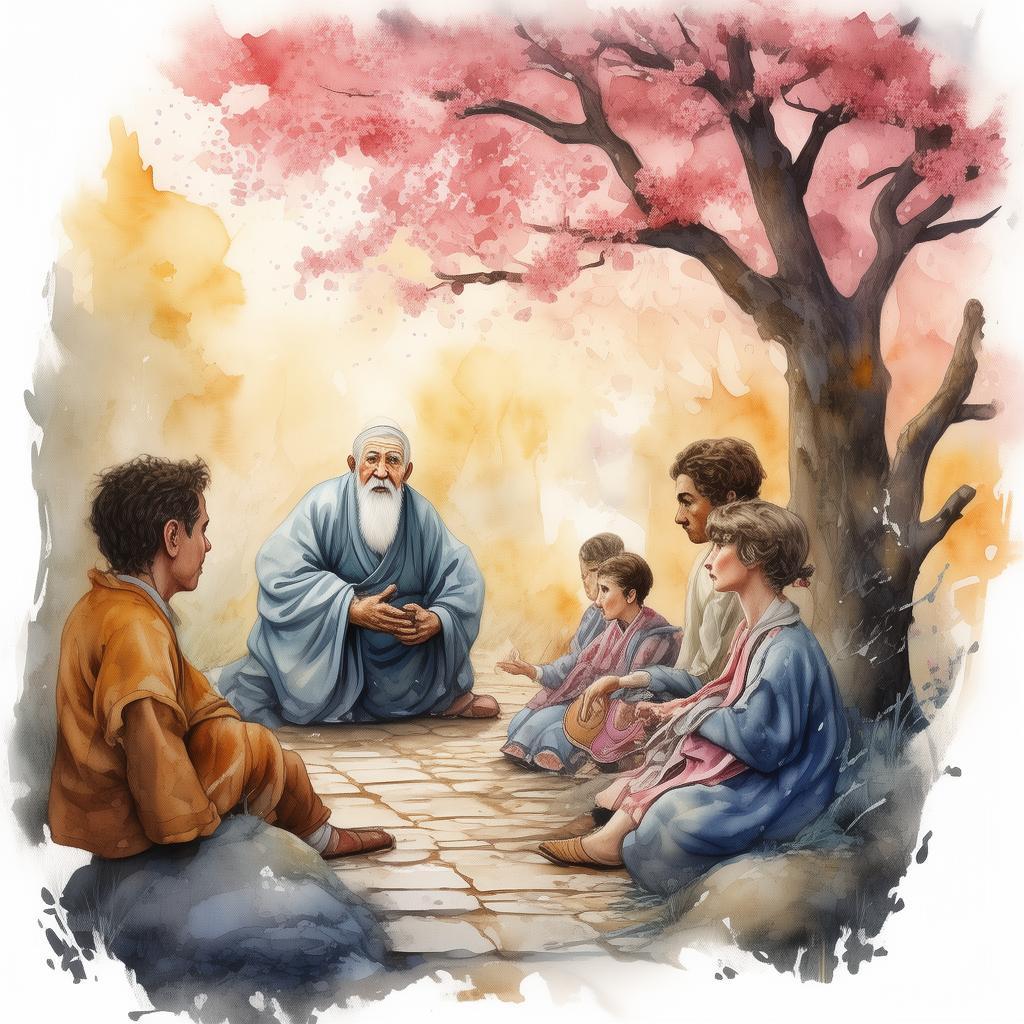Outwitting the Fates: The Scribe's Ironclad Resolution
In the ancient land of Qin, where the threads of fate were woven into the very fabric of existence, there lived a young scribe named Qing. Qing was known not only for his exquisite calligraphy but also for his keen intellect and unyielding spirit. It was said that he could decipher the most cryptic of texts, but it was his encounter with a mysterious scroll that would change his destiny forever.
The scroll, an ancient artifact, bore the ominous title "The Fates' Boundless Tapestry." It was said to contain the very essence of destiny, the secrets of life and death, and the paths one was to take. The scroll was a marvel of ancient wisdom, but it was also a curse, for those who read it were bound to their fates, their lives predetermined by the ink that lay upon its pages.
Qing, however, was no ordinary scribe. He believed that destiny was not a fixed tapestry but rather a canvas upon which one could paint their own masterpiece. With a heart full of courage and a mind brimming with curiosity, he decided to read the scroll and challenge the bounds of the beyond's fates.
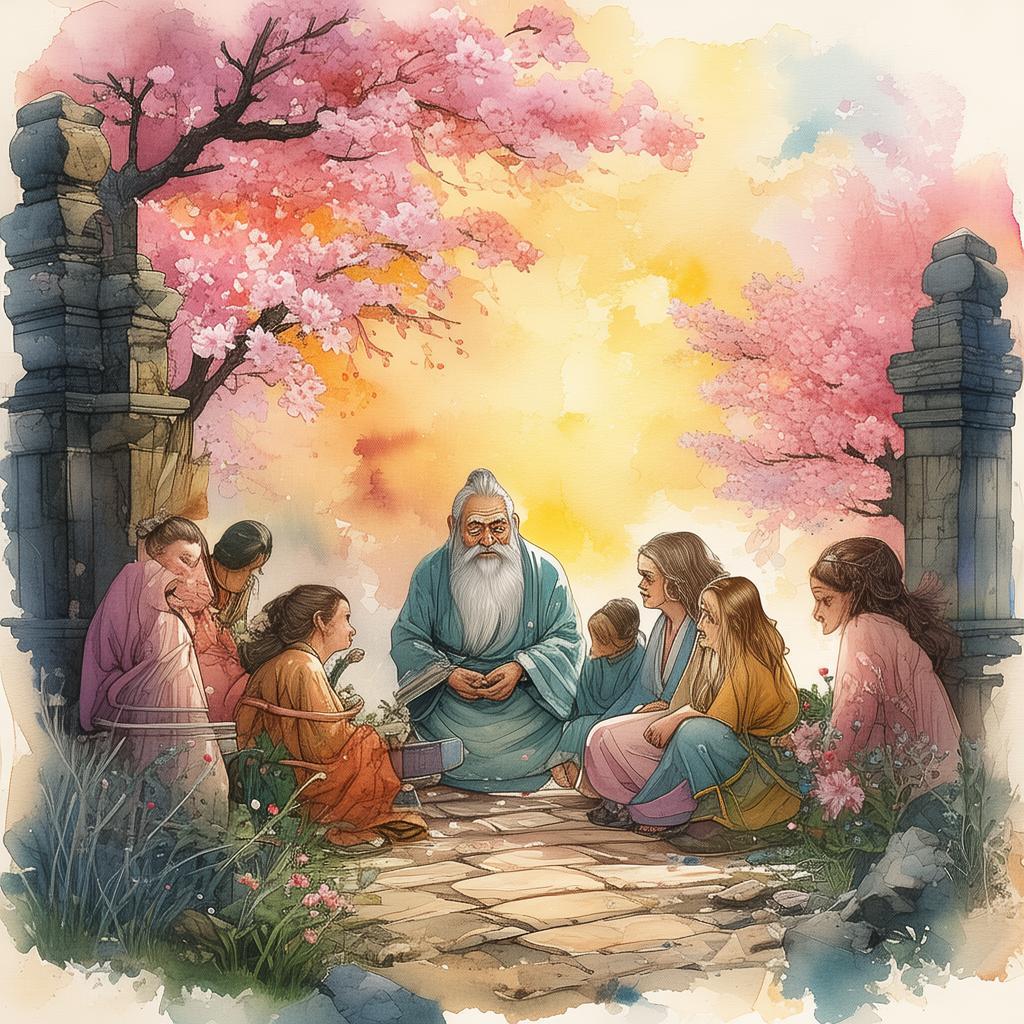
As Qing unrolled the scroll, the room grew dim, and the air seemed to thicken with the weight of destiny. The scroll's ink began to glow, casting a eerie light upon Qing's face. The words began to flow, a torrent of prophecies and destinies. But Qing was not one to be swayed by such tales. Instead, he began to weave his own stories into the tapestry, using his pen as a tool to reshape his fate.
He wrote of love that defied time, of battles that were never fought, and of friendships that stood the test of adversity. With each stroke of his pen, he felt the bonds of fate loosening around him. The scroll's glow faded, and the room returned to its former tranquility, but Qing felt different. He felt free.
Word of Qing's feat spread like wildfire throughout the land. The scholars and sages marveled at his audacity, while the common folk whispered tales of the scribe who outwitted the bounds of the beyond's fates. But Qing remained humble, knowing that his victory was not one of conquest but of understanding.
One day, a young girl named Ling came to Qing, her eyes filled with sorrow. She had read the scroll and seen her own tragic fate, a fate that was inescapable. Qing, with the wisdom he had gained, took up his pen once more and began to write. He wrote of a love so strong that it could break the chains of destiny, and of a girl who would overcome her fated sorrow.
Ling's eyes lit up with hope, and as Qing finished his tale, the scroll seemed to pulse with a new life. The girl's fate began to change, her path diverging from the one foretold. The people of Qin rejoiced, for they had found a way to overcome the constraints of their fates.
Qing, the scribe who outwitted the bounds of the beyond's fates, had not only freed himself but had also shown the world that destiny was not a fixed tapestry but a canvas waiting to be painted. His story became the stuff of legends, a testament to the power of the human spirit and the unyielding will to shape one's own future.
And so, in the land of Qin, the tale of Qing, the scribe, was told and retold, a reminder that even the mightiest of fates could be outwitted by the ironclad resolve of the human heart.
✨ Original Statement ✨
All articles published on this website (including but not limited to text, images, videos, and other content) are original or authorized for reposting and are protected by relevant laws. Without the explicit written permission of this website, no individual or organization may copy, modify, repost, or use the content for commercial purposes.
If you need to quote or cooperate, please contact this site for authorization. We reserve the right to pursue legal responsibility for any unauthorized use.
Hereby declared.
